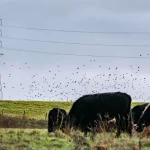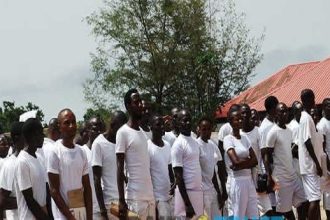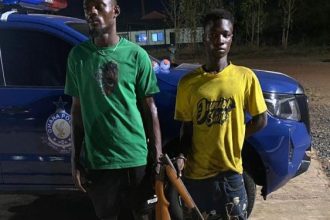The Vice President, Dr Mahamudu Bawumia, has said that the upcoming December elections should focus on solution-oriented ideas and policies rather than divisions based on religion or ethnicity.
Addressing the nation during the Eid-Ul-Adha celebrations held in Accra, Dr Bawumia highlighted the importance of preserving the country’s religious harmony.
“Ghana is a blessed country. We are the most peaceful country in West Africa and probably about the fifth or so most peaceful country in Africa.”
“We live as Muslims and Christians in harmony. We are one people, we are one nation, and we should let this election be about the policies and ideas and solutions that the respective candidates have for the country, and that should be what we should be focusing on,” Dr Bawumia stressed.
What is Eid ul-Adha?
There are two key Eids (Celebration Festivals) in Islam: Eid ul-Fitr, which signifies the completion of the Holy Month of Ramadan, and Eid ul-Adha, the greater Eid, which follows the completion of the annual Hajj pilgrimage at the time of Qurbani (sacrifice).
The celebration of Eid ul-Adha is to commemorate Prophet Ibrahim’s devotion to Allah and his readiness to sacrifice his son, Ismail.
At the very point of sacrifice, Allah replaced Ismail with a ram, which was to be slaughtered in place of his son.
This command from Allah was a test of Prophet Ibrahim’s willingness and commitment to obey his Lord’s command without question.
Therefore, Eid ul-Adha means the festival of sacrifice.
Depending on the country, the celebrations of Eid ul-Adha can last anywhere between two and four days.
The act of Qurbani (sacrifice) is carried out following the Eid Salaah (Eid Prayers), which are performed in congregation at the nearest Mosque on the morning of Eid.
The act of Qurbani consists of slaughtering an animal as a sacrifice to mark this occasion in remembrance of Prophet Ibrahim’s sacrifice for Allah.
This is also known as Udhiya—the days of animal sacrifice total three days, from the 10th to the 12th of Dhu-al-Hijjah.
The sacrificial animal must be a sheep, lamb, goat, cow, bull or camel; the sheep, lamb or goat consists of one Qurbani share, whereas a bull, cow or camel consists of seven shares per animal.
The animal must be in good health and over a certain age in order to be slaughtered in a ‘halal’ friendly, Islamic way.
The Qurbani meat can then be divided into three equal portions per share: one-third for you and your family, one-third for friends, and the final third for those in need.
Traditionally, the day is spent celebrating with family, friends and loved ones, often wearing new or best attire and giving of gifts.
















